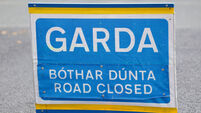Disabled people see promises constantly broken
Labour leader Eamon Gilmore replied: “I think it would be looking after people with disabilities. I think that, for example what Fianna Fáil did in cutting the blind pension, I think that was scandalous.
“The first area that Labour in government would address in terms of equality and in terms of giving decent supports to people would be the area of disabilities. I think as a country, we have to set that as a priority.”















